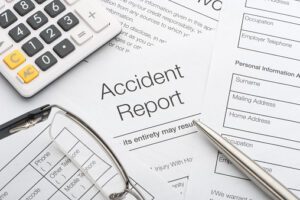
5 Possible Financial Impacts of a Car Accident Settlement
A car accident settlement is usually based on several factors including damages from medical expenses, vehicle damage, future medical procedures and lost income. Keep receipts and records of all the different ways your injuries have affected you to maximize the value of your claim.
Generally, minor injuries and fender benders result in lower average compensation than major accidents with life-changing injuries.
1. Economic Damages
The amount of money you are able to recover through an insurance claim or court judgment can be divided into two categories: economic and non-economic damages. The former includes the costs of your medical treatment, any lost income due to being unable to work, and the cost to repair or replace property damaged in the accident, such as your vehicle.
The latter includes compensation for the impact your injuries have had on your quality of life, which varies widely between victims. This can include the inability to enjoy hobbies and activities you did before the accident, and the emotional distress caused by the injuries, such as PTSD and depression.
Your attorney can use receipts and other documentation to help calculate your economic damages. They can also track your medical progress and consult with doctors to ensure you are recovering as expected. This information can be used to support a request for future lost earnings as part of your settlement. In many cases, this figure will be much higher than the projected total you might have been able to achieve if your injury did not cause long-term disability.
2. Non-Economic Damages
Unlike economic damages, which are measurable, non-economic damages are much more difficult to value. These include things like pain and suffering, loss of enjoyment of life, and loss of consortium (spouses may claim compensation for the loss of love and companionship caused by a spouse’s injury).
A personal injury lawyer could help you estimate what your non-economic damages are worth. One way is to keep a journal of how your injuries affect your day-to-day activities. Another is to ask your doctor about the severity of your injuries.
Insurance companies use different methods to calculate the value of something subjective, such as pain and suffering. For instance, a sprained wrist isn’t as severe as a chronic migraine that has kept you from working and enjoying your life. Your lawyer should explain these differences and how they can impact your settlement amount. They can also discuss other factors that might impact your damages. This includes the amount of future medical care you might need as a result of your injuries, and the cost to repair or replace your damaged property.
3. Pain and Suffering
Car accident victims who have sustained severe injuries such as permanent disability and lifelong chronic pain are typically awarded larger settlements for their physical and emotional distress. This is because the injury may have a large impact on their quality of life and prevent them from returning to work as quickly or at all.
Insurance companies often discount these damages as they are not easily captured by photos or other forms of documentation. However, a skilled attorney can gather evidence to help judges and juries understand the extent of the victim’s suffering. For example, a medical journal or diary that captures symptoms of anxiety and depression can be useful pieces of proof to support the claim for emotional distress.
Generally, to determine the amount of your pain and suffering, a lawyer will calculate your economic damages first including past medical treatment costs, future expenses for care and ongoing treatment, and lost wages. Then, they will multiply that figure by a predetermined multiplier or a per diem formula based on the nature of your injury.
4. Lost Wages
The most obvious economic damage from a car accident is lost wages. If your injuries prevent you from working in the capacity that you did before the crash, or make it impossible to work at all, then you deserve compensation for lost income.
Whether you used sick leave, vacation leave, or personal days to stay home from work because of your injury or had to reduce your hours at work, a fair settlement should cover these losses. You should also be compensated for any future loss of earning potential if your injury is permanent.
However, in New York and other no-fault states with a mandatory personal injury protection (PIP) or medical payments (MedPay) coverage, you may have to pay a deductible before these expenses are covered. In addition, it is important to remember that you only receive one settlement from the liable insurance company and can’t go back later to ask for more money. This is why it’s important to only settle when you are certain that you have finished treating and no additional bills will crop up in the near future.
5. Future Wages
In some car accident cases, the injuries sustained can impact a victim’s future earning capacity. In these situations, it is possible for a jury to award compensation for future lost wages. A car accident attorney can hire an economic expert to help accurately calculate how much money a victim should receive from this portion of the settlement.
Lost wages in car accident injury claims can include regular salary, bonus pay, commissions, overtime pay, and other perks of employment that are no longer available because of the victim’s injuries. Reimbursement for paid time off and vacation days may also be included in a claim.
Injuries that are expected to heal in a short amount of time generally result in lower compensation settlement amounts than permanent injuries, such as traumatic brain injury (TBI), spinal cord injuries, and amputations. This is because the medical expenses and physical and emotional pain and suffering associated with temporary injuries are not as significant as those that result in permanent injury. Permanent injuries often require lifetime medical care, ongoing treatment and surgery, and a reduced quality of life.


